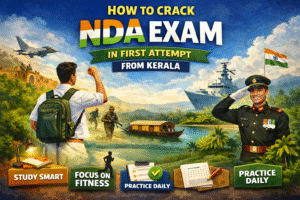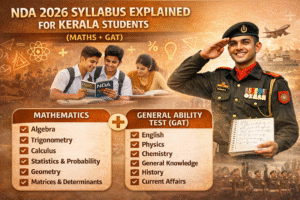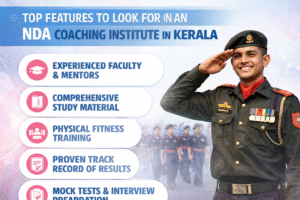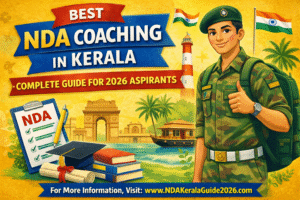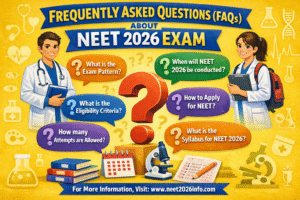The Union Public Service Commission (UPSC) conducts the Civil Services Examination (CSE), one of the most prestigious and competitive exams in India. To succeed, aspirants must have a clear understanding of the UPSC syllabus and the weightage of different subjects. A well-structured preparation strategy begins with analyzing the syllabus, breaking it into manageable sections, and understanding which subjects demand more focus.
This guide covers the UPSC syllabus for Prelims, Mains, and Interview, along with subject-wise insights to help you streamline your preparation.
UPSC Exam Structure Overview
The UPSC Civil Services Examination has three stages:
Preliminary Examination (Prelims) – Objective type (qualifying)
Mains Examination (Mains) – Descriptive type (merit ranking)
Personality Test (Interview) – Final stage of assessment
1. UPSC Prelims Syllabus
The Prelims is a screening test with two papers:
General Studies Paper I
Current events of national and international importance
Indian History (Ancient, Medieval, Modern, Freedom Struggle)
Indian and World Geography (Physical, Social, Economic)
Indian Polity and Governance (Constitution, Rights, Laws, Policies)
Economic and Social Development (Sustainable Development, Poverty, Inclusion, Demographics)
Environment and Ecology (Biodiversity, Climate Change, Pollution)
General Science
CSAT (General Studies Paper II)
Comprehension
Interpersonal skills including communication
Logical reasoning and analytical ability
Decision-making and problem-solving
General mental ability
Basic numeracy and data interpretation
Note: Paper I marks are counted for cut-off; Paper II (CSAT) is qualifying in nature, requiring 33% to pass.
2. UPSC Mains Syllabus
The Mains exam consists of nine papers (seven merit ranking + two qualifying).
Qualifying Papers
Paper A: Indian Language (choose from the list in Constitution’s 8th Schedule)
Paper B: English
Papers Counted for Merit
Essay Paper – Write essays on multiple topics
General Studies I (History, Geography, Indian Society)
General Studies II (Governance, Constitution, Polity, International Relations, Social Justice)
General Studies III (Economy, Technology, Environment, Disaster Management, Internal Security)
General Studies IV (Ethics, Integrity, Aptitude, Case Studies)
Optional Subject Paper I
Optional Subject Paper II
3. UPSC Interview (Personality Test)
Conducted by UPSC Board Members
Tests personality, presence of mind, awareness of current affairs, communication skills, leadership qualities, and ethical integrity
Marks awarded out of 275 (final merit includes Mains + Interview)
Subject Insights for UPSC
History
Ancient and Medieval: Focus on culture, religion, art, architecture
Modern: Indian freedom struggle, important leaders, reform movements
World History (Mains): Revolutions, wars, decolonization
Geography
Physical Geography: Earth structure, landforms, climate
Indian Geography: Resources, agriculture, industries, population
World Geography: Climate regions, trade, physical features
Polity
Indian Constitution, governance, rights, Parliament, Judiciary, local governance
Landmark amendments and Supreme Court judgments
Economy
Basics of economy, budgeting, taxation
Government schemes, reforms, poverty, unemployment
International trade, organizations (WTO, IMF, World Bank)
Environment & Ecology
Biodiversity, ecosystems, conservation
Climate change, pollution, sustainable development
Important international summits and treaties
Science & Technology
Space technology, biotechnology, IT, robotics
Latest innovations and applications in society
International Relations
India’s relations with neighbors
Global institutions (UN, G20, BRICS, QUAD)
India’s foreign policy initiatives
Ethics & Integrity
Moral values, thinkers, philosophers
Case studies on integrity, honesty, accountability
Governance-related ethical issues
Optional Subjects
48 subjects available (Public Administration, Geography, Sociology, Political Science, History, Literature, etc.)
Choose based on interest, scoring trends, and availability of resources
Preparation Strategy Based on Subject Insights
Study NCERT Books (6th–12th) for basics
Read newspapers and monthly magazines for current affairs
Use standard books (Laxmikant for Polity, Spectrum for Modern History, etc.)
Practice answer writing for Mains
Attempt mock tests regularly for Prelims and Mains
Conclusion
The UPSC syllabus may look vast, but with the right strategy, prioritization, and subject insights, it becomes manageable. Focus on building strong basics, stay updated with current affairs, and practice consistently. UPSC is not just about knowledge, but also about clarity of thought, analytical ability, and decision-making skills.
FAQs on UPSC Syllabus & Subject Insights
Q1. What is the most important subject in the UPSC syllabus?
A: Polity, History, Economy, and Current Affairs carry high weightage and should be prioritized.
Q2. How many subjects are there in UPSC Mains?
A: There are nine papers in Mains (two qualifying + seven merit ranking, including optional subject).
Q3. Which optional subject is best for UPSC?
A: Popular choices are Public Administration, Geography, Sociology, and Political Science, but the best subject depends on your interest and background.
Q4. Is CSAT tough for UPSC Prelims?
A: CSAT is qualifying, but many aspirants find it tricky. Regular practice in reasoning, comprehension, and numeracy is essential.
Q5. Can I clear UPSC without coaching?
A: Yes, with the right resources, discipline, and consistent practice, many candidates have cleared UPSC without coaching.
Q6. What is the role of current affairs in UPSC?
A: Current affairs play a crucial role in both Prelims and Mains. Questions often link static subjects with dynamic issues.
✅ SEO Keywords Included: UPSC syllabus, UPSC exam structure, UPSC subjects, UPSC Prelims syllabus, UPSC Mains syllabus, UPSC optional subjects, subject insights for UPSC, IAS exam syllabus.


